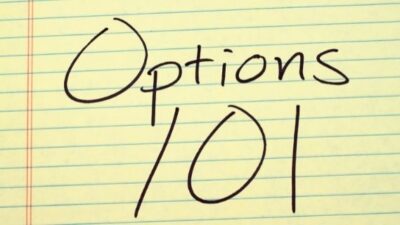No one planned for this, but Europe is toast.
Blame Putin, green energy policies, the New World Order, or sunspots — it doesn’t matter. Because regardless of who you blame, the fact remains that European economies find themselves trapped in a dangerous inflationary storm. A self-reinforcing feedback loop of the worst kind.
The culprit — natural gas.
This vital economic feed stock now trades in Europe at prices equivalent to $350 per barrel. That’s far beyond the point where profitable production remains possible so many companies are shutting down in response. That means fewer goods. And, as any first-year economics major can tell you, less supply relative to demand leaves prices no where to go but up.
Higher prices beget less production which begets higher prices.
But never fear. Because European politicians, bureaucrats, parliamentarians, diplomats, technocrats, and other sundry useless functionaries have plans to nip that cycle in the bud.
Compounding: The Greatest Force in Nature
One plan replaces prior green energy priorities with dirty old coal-fired plants.
Now, the coal needed to feed those plants would normally ship via barge on the Rhine River. Unfortunately, drought has drained the Rhine dry.
On its own, the drought presents a vicious but temporary problem. However, combined with a self-reinforcing inflationary backdrop, the merely problematic compounds into a full-blown calamity.
And just over the horizon lurks the possibility that Putin cuts off natural gas shipments entirely.
Though, thankfully, the central planners have plans for that too.
I Beg Your Pardon
While reading a recent Bridgewater report on the stickiness of European stagflation, I came across a synopsis of “a high-level approach for member states to reduce gas usage by 15% through March 2023” formulated by the European Commission.
That planned approach, according to the authors, has four tenets.
The first includes switching to coal (alongside keeping nuclear plants open) to diversify power generation away from natural gas. This addresses the problem from the supply side.
The second tenet addresses the demand side of the problem with a two-pronged approach.
The first prong relies on good old fashioned demand destruction (because no one can afford energy at $350 per barrel). Inflation can be its own cure, so at least their plan started with something that would happen with or without them.
The second prong, however, could not happen without the benefit of central planners.
Through propaganda tactics (most likely spinning less energy use as a heroic act in support of more war-for-democracy in Ukraine) they hope to nudge Europeans into a more energy-conscious frame of mind.
Should that plan fail, tenet three will then ration energy, favoring households over industry, except in the case, of course, of products deemed critical or when temporary shutdowns could inflict permanent damage on infrastructure.
How they acquire, much less process, the information needed to deem anything critical remains unaddressed. But I have complete confidence they believe they can do it.
And, finally, when all previous planning proves insufficient, the Commission graciously added one final tenet that “clarified conditionality for potential invocation of energy solidarity clause.”
“What’s that you say, Don?”
Eurocratic Proclivities
As you can imagine, agreeing to pretend that all European nations are sovereign when, in fact, they are beholden to unelected bureaucrats in Brussel involves a lot of conditions to encourage solidarity. Those conditions get complicated. Especially when problems in economics, nature, and war compound to form a human calamity.
Thus, it’s important to clarify the conditions that bind the many sovereign minion-nations into a single state of solidarity in case things get sorta dicey.
For instance, to paraphrase a scenario from the Bridgewater report, suppose that along the road “to reduce gas usage by 15% by 2023” France wants more natural gas from all the other countries in the Union. But before France can invoke such a claim, they must prove they have put forth their “best efforts” to reduce natural gas consumption.
Well, the European Commission’s final tenet lays out a path to provide that proof through that most sacred of bureaucratic icons — a Governance Framework.
Pass the gauntlet laid out by the Framework and — Bob’s your uncle — France can force other “sovereign” countries to share natural gas supplies.
Bridgewater Associates may call that the final tenet. I call it one tenet to rule them all, and in the darkness bind them. Because nothing destroys the incentive to produce like sharing by force.
Energy solidarity, thermostat limits, price controls, subsidized utility bills, and who knows what else will soon dominate daily life in Europe. Things are bad. But the inevitable piling on of even more central planning solutions like these will inevitably turn what would otherwise resemble a recession into a dead ringer for depression.
“All for one and one for all” will rapidly devolve into “get off my lawn.” And the shrinking economy will drag down the Euro and European stocks along with it.
Like I said…toast.
Think Free. Be Free.



